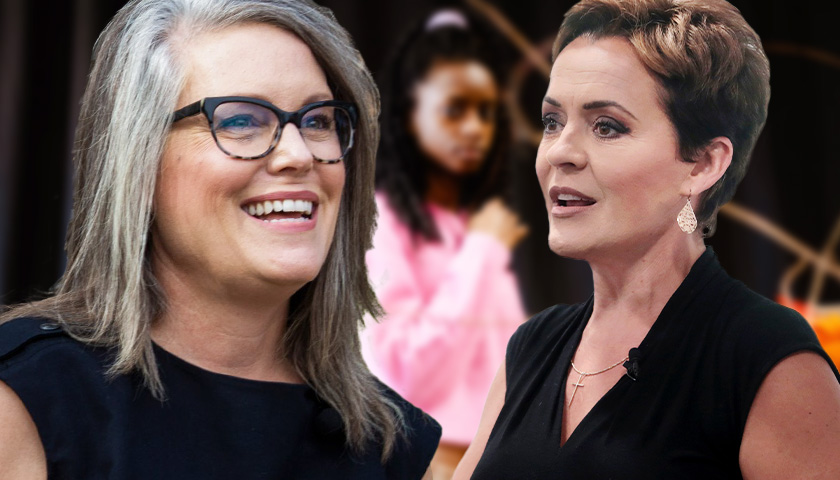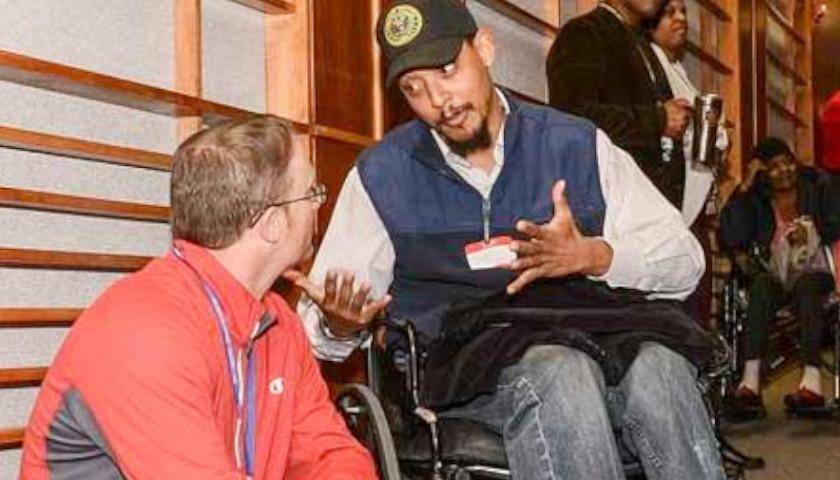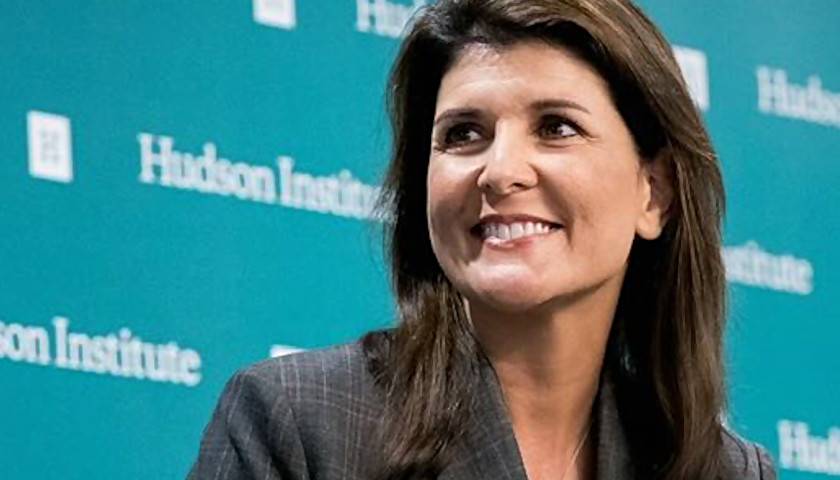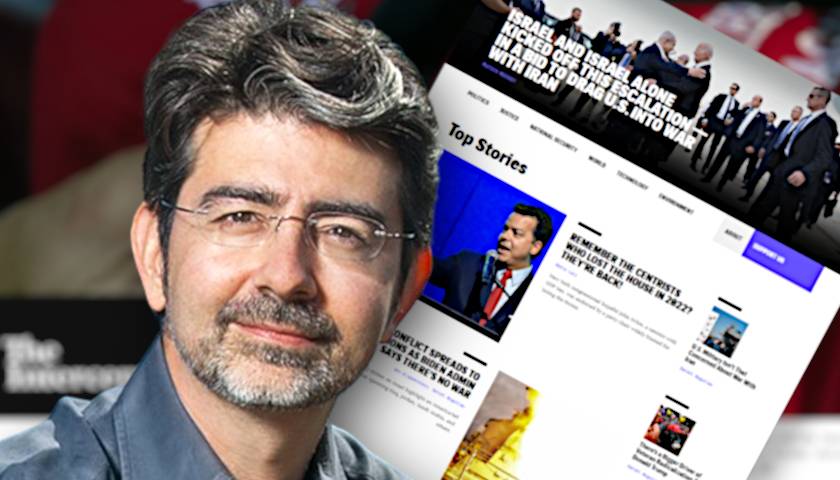Arizona GOP gubernatorial candidate Kari Lake condemned her opponent Katie Hobbs’ support for allowing teens who claim to identify as transgender to have access to life-altering hormone drugs and surgeries.
“She’s sponsoring – that means putting her name on – legislation that would introduce sex education to kindergartners,” Lake said during a Get Out the Vote (GOTV) rally Sunday. “This is outrageous and I was racking my brain, going, why would someone do that? That is sick and twisted at the same time.”
.@KariLake: "@KatieHobbs is ok with our children being mutilated when they're 15 and 16 years old. Somebody's got to stand up and fight this guys…this is stuff we have to fight, and stand up and fight now, or forever we will regret this moment. I'm ready to take on this fight." pic.twitter.com/Gdqepyx0PB
— Kari Lake War Room (@KariLakeWarRoom) November 7, 2022
Lake continued about Hobbs’ support for transgender medical procedures for teens:
She’s also on her website encouraging and supporting – I don’t know what they call it – they have a fancy name for it – “gender-affirmation surgery” – for our children. This is crazy. It’s sick. It’s nonsense. It’s insanity. We’re not pushing this on our kids. And then I figured out why. Because her husband is making money off of the sickness. Her husband is a child psychiatrist who specializes in transitioning our children, permanently damaging their bodies … it’s mutilation – who said that? – That’s exactly what it is. Our beautiful, perfect children. They’re okay with them being mutilated when they’re 15 and 16 years old, and somebody’s got to stand up and fight this, guys, I mean, really, this is a hill worth dying on. Am I the only one who’s willing to die on this hill?
The Daily Wire reported last week that Hobbs’ husband, Patrick Goodman, who is listed on the counseling staff of Phoenix Children’s Hospital Gender Support Program, was named as a therapist in a lawsuit involving a young transgender child:
Goodman is identified as a therapist to one of the children involved in the lawsuit, a 10-year-old trans girl identified in court documents as Jane Doe. In one document dated November 9, 2020, Goodman was identified as a potential witness in the case, expected to testify on the child’s treatment. Goodman was to testify in relation to Jane Doe’s request for a preliminary injunction to force the state to change the child’s birth certificate ahead of the start of the school year.
“Patrick Goodman is a therapist at Phoenix Children’s Hospital and Jane Doe’s mental health provider,” a court document states. “He is expected to testify regarding his mental health treatment of Jane Doe’s gender dysphoria and opinion regarding Jane’s health and well-being absent injunctive relief.”
In March, Hobbs’ campaign released a statement on what radical LGBTQ activists referred to as the International Day of Transgender Visibility, asserting the Democrat gubernatorial candidate “stands with trans community amid hateful laws signed by Governor Ducey.”
“My heart goes out to the entire LGBTQ+ community, especially our youth, who are being targeted and discriminated against by their own government, and being denied their freedom of identity,” Hobbs said in the statement, condemning Republican Ducey’s signing of Senate bills 1138 and 1165, which ban minor children from undergoing transgender medical procedures and prohibit males from competing in women’s sports.
“This week, Governor Ducey and the Republican legislature took an axe to civil rights in Arizona,” Hobbs said, claiming the governor and GOP lawmakers are “denying trans Arizonans the freedom to be their authentic selves.”
Lake explained during the rally that young children are first indoctrinated in gender ideology in schools, when their “brains are so malleable.”
“You know, their imagination is so great that some adult they trust can go in there and talk them into thinking they can change their gender,” she said. “And continue along that line until they’re 15 and 16 and they’re having a double mastectomy and a hysterectomy. This is stuff that we have to fight, and stand up and fight now, or forever we will regret this moment. I’m ready to take on that fight.”
In condemnation of Lake’s comments, some Twitter users employed the LGBTQ activist “transition or die” narrative that urges parents to immediately affirm their child’s claim of a new gender identity, or else risk that child’s suicide.
Absolutely no one is doing this.
However, teens with gender dysphoria are over 7x more likely to commit suicide. So, I guess, in your eyes, better off dead, right?
— Trillimer (@trillimer) November 7, 2022
“Keep kids miserable, without access to quality education, and without proper healthcare” – Kari Lake
— JustGus (@AFellaNamedGus) November 7, 2022
You are nothing more than a trans hater and a trans bigot. Why don't you just admit it already that you hate the LGBTQIA especially trans people. Every time that I read something yours I hear you speak you are always spouting hate against trans people. You are a bully. pic.twitter.com/fLJqW9tXc3
— John Rohrbach🏳️🌈🇺🇲🇺🇦📝 😸 dad and 🐶 lover. (@john_rohrbach07) November 7, 2022
However, in a study published in the Journal of Sex & Marital Therapy, Dr. Stephen B. Levine, of the Department of Psychiatry at Case Western Reserve University, and his colleagues noted the “unprecedented rise in the numbers of children and adolescents seeking gender transition” in under a decade.
“The question of suicide is inappropriately handled,” Levine wrote:
Suicide among trans-identified youth is significantly elevated compared to the general population of youth (Biggs, 2022; de Graaf et al., 2020). However, the “transition or die” narrative, whereby parents are told that their only choice is between a “live trans daughter or a dead son” (or vice-versa), is both factually inaccurate and ethically fraught. Disseminating such alarmist messages hurts the majority of trans-identified youth who are not at risk for suicide. It also hurts the minority who are at risk, and who, as a result of such misinformation, may forgo evidence-based suicide prevention interventions in the false hopes that transition will prevent suicide.
“The ‘transition or die’ narrative regards suicidal risk in trans-identified youth as a different phenomenon than suicidal risk among other youth,” Levine and his colleagues note. “Making them an exception falsely promises the parents that immediate transition will remove the risk of suicidal self-harm.”
A “gender-affirming” doctor with British Columbia Children’s Hospital and the World Professional Association for Transgender Health’s (WPATH) Global Education Institute (GEI), also expressed concern that minors do not have the mental capacity to comprehend the ramifications of life-altering hormone treatments and transgender surgeries.
In a Project Veritas exposé, pediatric endocrinologist Dr. Daniel Metzger acknowledged to his listeners in a training video that regret is now a factor, as minors who became sterile from their transgender treatments are now grown up, desiring to have children of their own.
“So, I think, I think when we’re doing informed consent … We try to talk about it, but most of the kids are nowhere in any kind of a brain space to really, really, really talk about [it] in a serious way,” Metzger admitted. “That’s always bothered me. But, you know, we still want the kids to be happy, happier in the moment, right?”
– – –
Susan Berry, PhD, is national education editor at The Star News Network. Email tips to [email protected].
Photo “Katie Hobbs” by Katie Hobbs. Photo “Kari Lake” by Gage Skidmore. CC BY-SA 2.0. Background Photo “Young Teen” by Wendy Wei.





